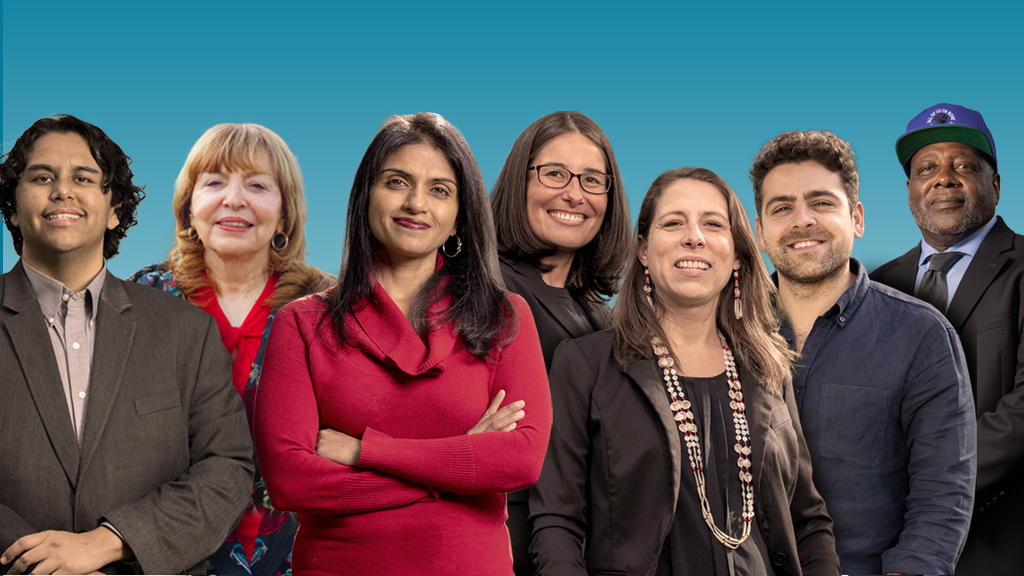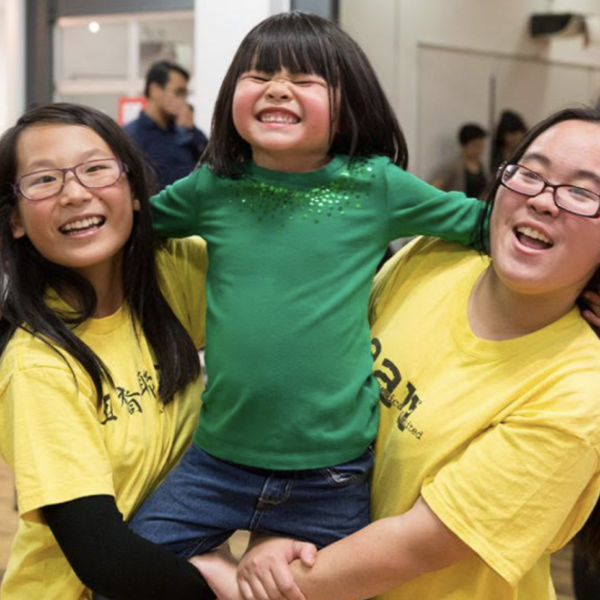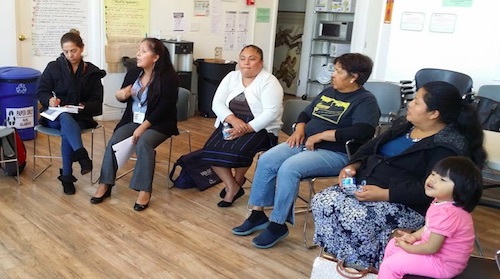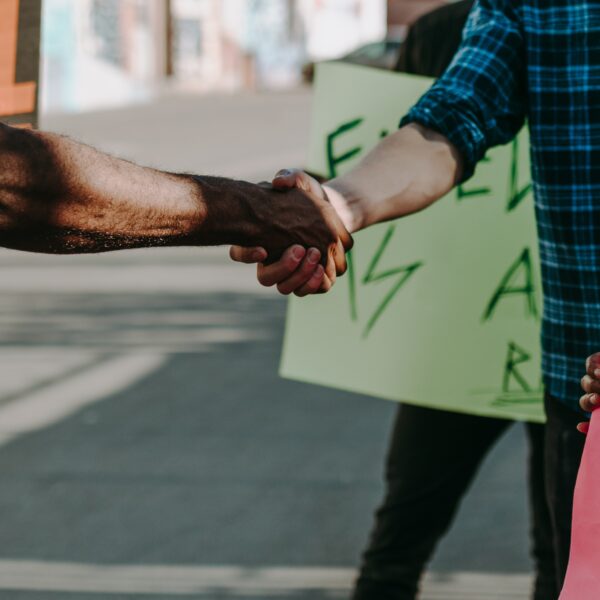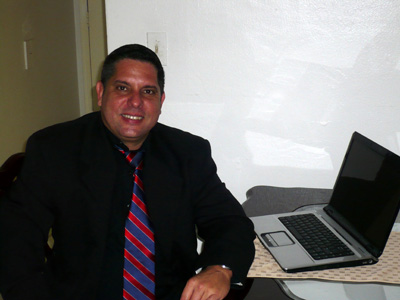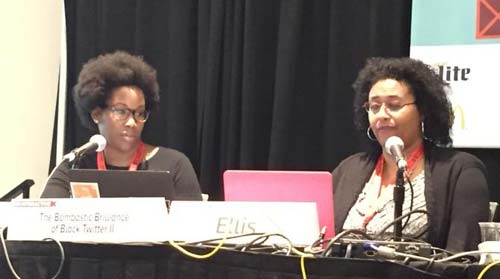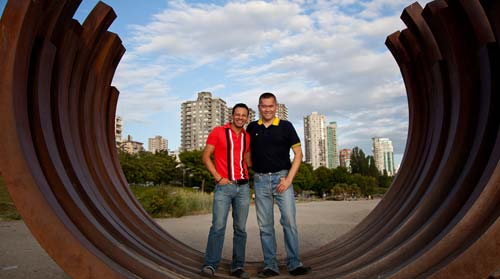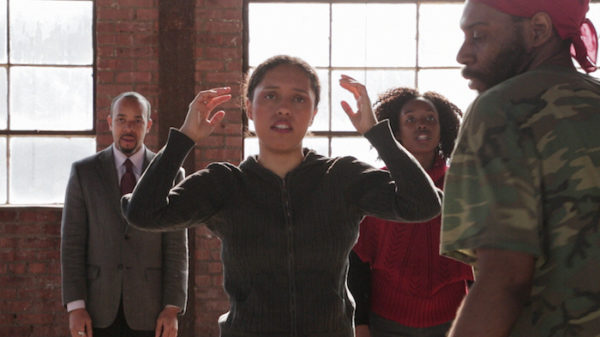Can Real Change Happen at the Grassroots?
Ethnic Media Services Hosts Conversation with 2023 James Irvine Foundation Leadership Award Recipients
Advocating for Critical Issues Affecting Californians
Ethnic Media Services recently hosted a compelling conversation with recipients of the 2023 James Irvine Foundation Leadership Awards, honoring seven outstanding leaders from six organizations for their tireless efforts in advancing solutions to critical issues impacting millions of Californians. The topics covered during the conversation included housing and homelessness, tribal sovereignty and family welfare, criminal justice reform, human rights, education, food insecurity, climate change, and economic justice.
Among the esteemed speakers were Chris Contreras, Chief Program Officer at Brilliant Corners, a renowned organization addressing housing issues; Saru Jayaraman, President of One Fair Wage, a national organization advocating for fair wages and job quality for restaurant and service workers across the United States; and Dorsey Nunn, Executive Director of Legal Services for Prisoners with Children/All of Us Or None, a highly regarded organization focused on expanding prisoner rights and advocating for incarcerated individuals.
During the conversation, Saru Jayaraman highlighted the historic moment of worker revolt in the restaurant industry, where low-wage workers, including many immigrants and people of color, are refusing to work for poverty wages. She discussed the history of the sub-minimum wage for tipped workers, which dates back to emancipation and has been perpetuated by the lobbying power of the National Restaurant Association. Jayaraman also shared how One Fair Wage has been working to raise wages and improve job quality in the restaurant industry, including through their “25 by 2, 50” campaign, which aims to pass bills and ballot measures in 25 states by the 250th anniversary of the Declaration of Independence in 2026.
Additionally, Chris Contreras discussed Brilliant Corners’ dedicated efforts to address housing issues in California, and Dorsey Nunn shared insights about Legal Services for Prisoners with Children/All of Us Or None’s impactful work in expanding prisoner rights, including their efforts to end the sub-minimum wage for incarcerated workers in California.
Overall, the conversation shed light on the important work of these community leaders in advancing fair wages, ending homelessness, and expanding prisoner rights in California, and their unwavering efforts to create positive change in their respective areas of focus.
In his address, Dorsey Nunn, Executive Director of Legal Services for Prisoners with Children/All of Us Or None, expressed gratitude for the opportunity to speak to the audience, acknowledging the challenges of garnering media attention and engaging with a large audience. He emphasized the need to change the narrative around issues such as brutalization, torture, slavery, disenfranchisement, and structural discrimination, which often go unnoticed due to how they are talked about.
When referring to individuals like us, it’s important to use respectful and inclusive language. Terms like “inmates” or “convicted individuals” can be insulting and perpetuate a dehumanizing narrative. We prefer to be called “people who are formerly incarcerated” or “previously incarcerated” as it acknowledges our humanity and recognizes that we are more than just our past mistakes. It’s crucial to understand that the language used in writing or broadcasting about us contributes to the narrative that diminishes our humanity.
Our fight is against a system that practices slavery, both nationally and in the State of California. The practice of trading our bodies on the stock exchange through contracts with private corporations is embedded in the United States Constitution and the California Constitution, specifically in Article 1, Section 6.
Over the course of 50 years, I have been involved in various initiatives aimed at bringing about change. For example, we filed a lawsuit and supported 50,000 prisoners during a home-to-strike to end the inhumane practice of long-term solitary confinement at Pelican Bay. We have also fought against structural discrimination in employment through the Ban the Box campaign, which demands that employers stop asking about conviction history before making a conditional offer of appointment. This is because we believe that individuals should not be denied employment opportunities solely based on their felony conviction status, but rather on their skills and qualifications.
In addition, we have been actively engaged in voting rights restoration efforts since the passage of the Voting Rights Act in 1965. Our group has likely re-enfranchised more people than any other group since the 1960s. For example, we recently mobilized over 1,000 people for door-to-door canvassing, text messaging, and emailing to reach 67,000 people in Florida before the election. We have also conducted similar campaigns in Atlanta. Every two years, we show up in communities and advocate for voting rights in a meaningful way. Despite our efforts, our work often goes unnoticed, and our achievements, such as re-enfranchising close to 100,000 people in California in the last 5 years, are not acknowledged or discussed. It’s important to recognize and appreciate the impact of our work in advocating for change and promoting social justice.
It is crucial to understand that disenfranchisement not only impacts individuals who are currently incarcerated but also whole communities, particularly those that are predominantly Black and Brown. The use of the word “we” in the narrative is significant as it questions who is responsible for the disenfranchisement and highlights that it affects not just the individual but also the community.
Our housing crisis has reached alarming proportions, and I am joining you today as the Chief Program Officer at Brilliant Corners, an organization that deals with housing issues. I am speaking to you from Los Angeles, California, which is one of the largest epicenters of homelessness in our nation. California accounts for approximately one-third of the entire U.S. homeless population. At the last count, over 170,000 Californians are unhoused, with at least 60,000 living in Los Angeles County on any given night. The low vacancy rates, severe lack of affordable housing, and skyrocketing rents throughout the state have led to an unprecedented increase in homelessness. For example, in Los Angeles County, median rent has risen by 54% since 2000, while renter income has only grown by 16%. This glaring disparity has left hundreds of thousands of Angelinos homeless or severely burdened by rent, at risk of losing their homes. Furthermore, the housing crisis has disproportionately affected communities of color. Although Black Angelinos make up only 8% of LA’s population, they comprise over 30% of its homeless individuals. We have also witnessed a 26% increase in Latino homelessness, resulting in Latinos now constituting 44% of LA County’s homeless population.
I take pride in representing Brilliant Corners, an organization that provides innovative housing and housing-related services, and portfolio programs to individuals transitioning from or at risk of homelessness, institutionalization, or incarceration. Our primary focus is on getting people into housing and ensuring they remain stably housed. We believe that housing is a universal right and that permanent supportive housing is the solution to ending homelessness. Brilliant Corners operates the Los Angeles Flexible Housing Subsidy Pool, or Flexible for short, which is a nationally recognized supportive housing model that has successfully helped thousands of people exit homelessness since its launch in 2014.
#HousingCrisisSolutions #BrilliantCorners #SupportiveHousing #EndHomelessness #LosAngeles #California #InnovativePrograms #CommunitySupport #HousingRights #HomelessnessAwareness #SocialImpact

